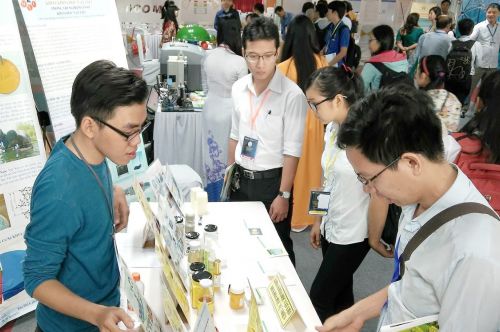Manufacturers must think long term

Enumerating the challenges facing the country in the short-term, they said that while the trade balance was looking healthier, exports were down by 20-25 per cent and that the "overall balance" was "still vulnerable to higher commodity prices." Foreign Direct Investment (FDI) and remittances from abroad would be weaker this year, they noted. While domestic demand had helped the country record decent economic growth so far this year, there were concerns over a return of inflation, fiscal position and the ability to raise funding, they added.
Participants at the VNR500 summit 2009 on strategic financial management and getting ready for recovery said enterprises should return to their core strengths and restructure their business instead of diversifying into too many areas when the storm hits.
The conference was attended by the top 500 local businesses, economists and experts from big banks including Citibank Vietnam, ANZ, HSBC and Standard Chartered Bank; auditing firms like Ernst & Young Vietnam and PricewaterhouseCoopers; and other financial institutions.
They discussed and shared experiences with businesses about ways to deal with the crisis and get ready to grab opportunities in the post-crisis period.
"Enterprises need to consider the crisis as an opportunity to make strategic changes towards development," said Tom Herron, director of Transaction Advisory Services at Ernst & Young Vietnam.
Business initiatives were being accelerated and narrowed, so companies could focus on achieving more significant results such as cost reduction, business restructuring, review of capital investment programmes, he said.
They could also review their financial functions, relocate production and share service centers and even effect significant employee reduction programmes, he said, adding companies should divest non-core assets or non-performing businesses.
Increasing customer loyalty should be one of the top priorities for improving business performance, and delivering on performance improvement promises would be essential to boost investors’ confidence, he added.
Herron also said that businesses should look for strategic alliances, expand into new markets, diversify into new product lines and implement robust internal control frameworks.
Cheung Tai Hui, head of the Southeast Asia Economy Research Division of Standard Chartered Bank, said the three elements of time, liquidity and confidence would play an important role in economic recovery.
"Time is needed for fiscal stimulus packages to take effect, liquidity will support the financial market and confidence will drive investment and consumption," Hui said.
Political stability was also important, Hui said, noting that Viet Nam was a favoured destination for investors during the crisis.


